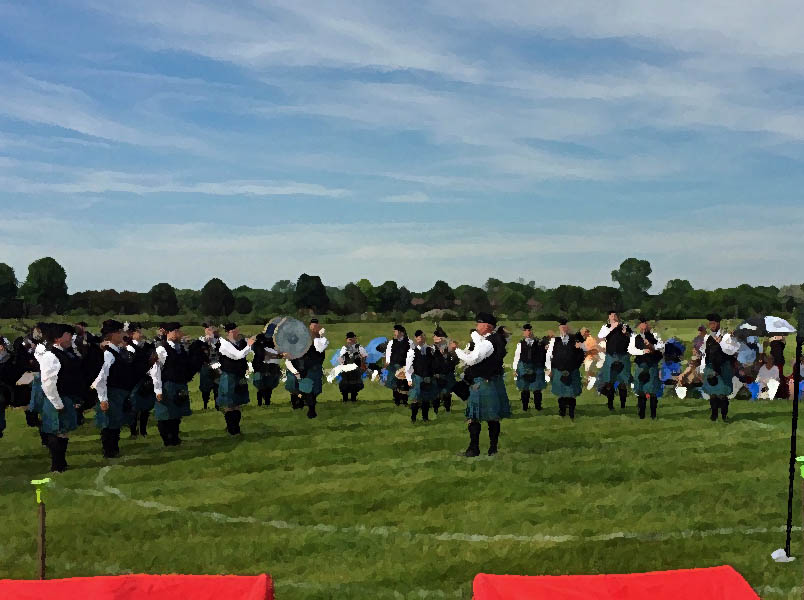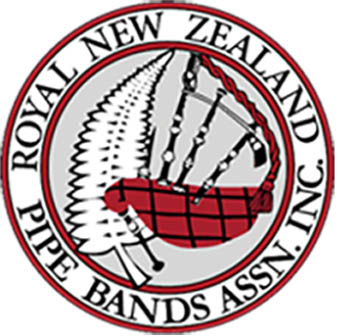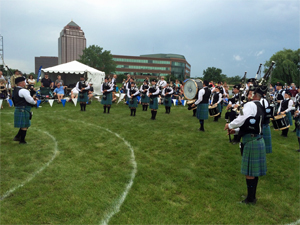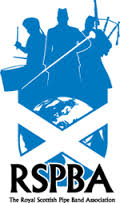Thinking associations: where things stand and where we could be going
 When the COVID-19 crisis abates, and lives return to some semblance of normal, where will the piping and drumming world stand?
When the COVID-19 crisis abates, and lives return to some semblance of normal, where will the piping and drumming world stand?
For the last hundred years, piping, drumming and pipe bands as we know them have thrived on, and even existed for, competition. Solo piping and drumming contests have not substantially changed for at least 200 years. Pipe band competitions have not altered considerably for a century.
Almost everyone practices to perfect their skills and their craft to play as technically well as possible, usually to do well in competition and, with relatively few exceptions, we look to events like Highland games where the piping, drumming and band contests are an aspect.
But what if many of these events don’t return as we know them – or don’t return at all?
What if they come back, but decide that they don’t need the quirky contests that relatively few paying enthusiasts understand if they watch them at all?
 With some, if not many Highland games operating on a financial thread, without sponsors and vendors to participate in their events, they might not have an event at all. Or to hold a games, they might cut back, as so many already have done, and hired one or two local or regional pipe bands to satisfy the piping and drumming authenticity requirement at a lunchtime performance, and maybe a rendition of “Amazing Grace” to close the event, and that’s that?
With some, if not many Highland games operating on a financial thread, without sponsors and vendors to participate in their events, they might not have an event at all. Or to hold a games, they might cut back, as so many already have done, and hired one or two local or regional pipe bands to satisfy the piping and drumming authenticity requirement at a lunchtime performance, and maybe a rendition of “Amazing Grace” to close the event, and that’s that?
We contacted several association leaders for their thoughts. To a person, every one of them stressed that they are simply focussing on good health for their members right now, but some are also thinking further into the future.
“The Royal New Zealand Pipe Band Association is definitely thinking about what this all means for our members and us,” said NZPBA President Iain Blakely. “Right now the immediate focus is on survival and health, like most people and organizations. We’re doing what we can to plan for the new future, whatever it looks like. We know we need to be thinking about contingency planning for future events, including conferences, National Youth Band activities, contests and our Summer School.”
An association’s greatest “value” to most of its members is its ability to stage well managed and adjudicated competitions, along with the necessary grading standards to make them equitable and truly competitive.
Right now, as go the Highland games, so goes the competitions. The games can go on without us, but can we go on without the games?
Associations haven’t expanded much beyond that core mandate. There might be occasional workshops, but essentially all associations do is run competitions in their customary format. With few exceptions, associations don’t stage pipe band contests on their own. That is, they look to other organizations and events, most often Highland games, to stage their contests.
 Right now, as go the Highland games, so goes the competitions. The games can go on without us, but can we go on without the games?
Right now, as go the Highland games, so goes the competitions. The games can go on without us, but can we go on without the games?
Highland games and associations are essentially non-profit small businesses.
So, if familiar competitions peter out, what then? Where will the value be in being a member of an association, particularly when, for many, extra cash will be tight and hard decisions will have to be made? What then?
“At this time, British Columbia Pipers Association is not conducting planning activities for a return to normal operations, but is primarily focussed on continuing to provide an environment where players musical development is supported and advanced,” said BCPA President Rob MacNeil, whose organization was one of the first to cancel a major event because of the emerging coronavirus pandemic, when it decided not to hold its indoor Annual Gathering, the biggest competition of the year in the Pacific Northwest.
Thinking creatively
In 2015, a group in Northern Ireland tried to launch a piping, drumming and pipe band event called “The Spring Gatherin’.” Modelled somewhat after the successful Winter Storm weekend in Kansas City, The Spring Gatherin’ was to include teaching workshops, solo contests and a freeform pipe band competition, where bands could be judged on their overall performance.
The concept was well-received by area pipers, drummers and bands, and the rest of the world appeared to embrace it.
But the Royal Scottish Pipe Band Association would have none of it. The association allegedly threatened any participants with suspension or even dismissal as members if they participated, seemingly seeing The Spring Gatherin’ as a threat to their monopolistic hold on pipe band events in the UK.
![]() Spring Gatherin’ nixes contests under alleged RSPBA pressure
Spring Gatherin’ nixes contests under alleged RSPBA pressure
March 19, 2015
Despite its widespread support, the fledgling conceptual Spring Gatherin’ folded before it could ever be tried, bands crumbling to the pressure exerted on them by the RSPBA.
In the 1990s, a group in Ontario put together an extensive analysis of a declining Highland games circuit and concluded that it would be wise for the Pipers & Pipe Band Society of Ontario to explore new ways to attract interest and engagement, to “sell” a new product to new audiences.
As with many similar efforts, the report essentially evaporated and the organization pressed ahead with the status quo. Its events and offerings are ostensibly the same as they were in the 1950s.
 We cite these as examples of static association thinking. Rather than embracing change and trying the new, it was shut down, essentially to preserve a past.
We cite these as examples of static association thinking. Rather than embracing change and trying the new, it was shut down, essentially to preserve a past.
To be fair, pipers, drummers and pipe bands don’t normally ask their associations to do things differently. They’re quite happy with the usual century-old format, with Highland games as the chief platform, and there’s not much for most associations to do except keeping things ticking along in their familiar fashion.
It’s a path of least resistance approach that works fine, except perhaps when the path is blocked by a pathogen.
“We’re not sure how it will go, but we are sure there will be significant differences ahead,” New Zealand’s Blakeley says. “It’s clear international travel will be off the agenda for a while. Down here in the ‘wild west,’ we love to have an open and accessible band community. We’re isolated geographically, so having a regular flow of pipers and drummers in and out of the country makes a huge difference to us. We are going to miss that for a while. So, we’re trying to work out what that all means for our  domestic scene. It’s possible there’ll be demand for more small contests closer to home as bands are less able to travel the length of the country. It’s also possible bands may look inward and do more teaching, which won’t be a bad thing. We know there will be challenges in obtaining overseas adjudicators and tutors.”
domestic scene. It’s possible there’ll be demand for more small contests closer to home as bands are less able to travel the length of the country. It’s also possible bands may look inward and do more teaching, which won’t be a bad thing. We know there will be challenges in obtaining overseas adjudicators and tutors.”
The Pipers & Pipe Band Society of Ontario, perhaps to its credit, appears to be thinking with stark realism in the event that all of 2021 is cancelled.
“The [PPBSO] Board has dedicated itself to performing an 18-month worst-case scenario planning exercise where we assume that all games are cancelled for both 2020 and 2021,” PPBSO President Chris Buchanan writes in a statement he published on the association’s website. “While I can’t even imagine two summers without Highland games, I don’t think that any of us imagined that what’s occurred over the past month would ever have happened. We want to make sure we’re prepared for the worst, and will examine all possible avenues available to us.”
Thinking ahead
Although the future is uncertain, it’s probably a good idea to start planning if the competition piping, drumming and pipe band world is faced with a dramatic change.
Associations are there to represent the interests of its members and to promote and foster the piping, drumming and pipe band arts. We can assume that their members will continue to want places to compete, so it follows that associations need to be prepared to think creatively, and to be ready to organize events entirely on their own.
 Or, perhaps association members will want more of a mix of competition and events like performance opportunities, teaching or other concepts that haven’t even been realized. It will be a time for creative and open-minded thinking, to try new things in a post-coronavirus pipe band world.
Or, perhaps association members will want more of a mix of competition and events like performance opportunities, teaching or other concepts that haven’t even been realized. It will be a time for creative and open-minded thinking, to try new things in a post-coronavirus pipe band world.
The BCPA’s MacNeil says: “The BCPA Board, in consultation and partnership with the Highland games, and the Adjudication and Solo Grading subcommittees, are close to finalizing and implementing a contingency program to provide opportunities for players in all the solo music disciplines and grades to receive periodic independent performance assessments by online means to continue their musical development during the spring and summer. Also, BCPA education bursaries will be more significantly promoted to BCPA members.”
On the other hand, North America’s largest piping and drumming organization, the Eastern United States Pipe Band Association, appears to be taking things one step at a time.
“We have not enacted a plan to return yet,” says Eastern United States Pipe Band Association President Jim Dillahey. “With the uncertainty of the situation, it wouldn’t be prudent to think about a return to business as usual. All but one or two games have cancelled well into July. We have sanctioned a number of ‘online’ contests during this timeframe. We have yet to have one take place, but we hope they will be a big success. We are trying to do what we can to provide educational opportunities to our members in this tough time. There is no time better than the present to retool tunes and work to gain a better grasp on what we need to improve on as musicians.”
“Increasing our online connectivity aims to strengthen our community and improve the educational resources we provide to members.” – Iain Blakely, RNZPBA president
“We’ve decided we need to keep innovating and improving what we do for our member bands,” New Zealand’s Blakely says. “We need to keep putting them in the centre of everything we do. Increasing our online connectivity aims to strengthen our community and improve the educational resources we provide to members. The focus at the moment is keeping ourselves informed and up-to-date and setting up regular communication with key people we need around the table helping us to make decisions,” New Zealand’s Blakely says. “We still have some time up our sleeves before we have to make any major decisions on these fronts.”
 “A number of us have been talking for a while about the need to do a full strategic review and engagement with the members,” the PPBSO’s Buchanan adds. “What is it that we want to do? How can we grow? What should we look like a decade from now? Always our operational needs get in the way of really reflecting on those questions. This horrible situation allows us an opportunity to delve into those questions. We have unexpected time that we won’t waste.”
“A number of us have been talking for a while about the need to do a full strategic review and engagement with the members,” the PPBSO’s Buchanan adds. “What is it that we want to do? How can we grow? What should we look like a decade from now? Always our operational needs get in the way of really reflecting on those questions. This horrible situation allows us an opportunity to delve into those questions. We have unexpected time that we won’t waste.”
In British Columbia, there’s a recognition that some games, if and when they do return, might forego piping, drumming and band competitions. “Some of the Highland games are considering rescheduling to a later date in August or September and eliminating all competitions, essentially resulting in a ‘festival.’ Under such a scenario, the BCPA region may have no or just one solo and band competition this season.”
On the other hand, there is some optimism that games will continue, some regions with events on more consistently solid ground, for example, the Midwest in the central United States.
“Almost all of our contests were in pretty good financial shape,” said Jim Sim, President of the Midwest Pipe Band Association. “This year will be a break-even for them, which is better than a washout caused by weather. When that happens, they take a huge loss typically. At least with this, there are few, if any, costs. We have not heard any of our contests say that they won’t be back. The three that have cancelled so far have all said they will see us in 2021. All of our MWPBA events will be back next off-season, as we see it today. Again, I don’t think there is any reason to plan for the worst right now.”
Thinking financially
Membership in an organization is predicated on a sense of value. If pipers, drummers and pipe bands don’t feel they get good value from their paid membership, they will drop out.
If associations can’t provide value fast enough, there’s almost certain to be a widespread reconsideration by members. With fewer members or third-party Highland games and organizations paying for association services, the financial implications could be dire.
“We have discussed potential implications for the Royal New Zealand Pipe Band Association in terms of membership and finances,” Blakely says. “It’s difficult to predict. We know individual members of our bands are going to lose jobs and experience financial hardship. We anticipate some will choose to put their pipe band involvement on hold while they focus on more important aspects of their lives. Others may find that involvement in their band offers them solace and the support they need to get through the tough times. We are a very small and close community here. It’s clear one side-effect of all of this is that many people are re-evaluating what is important in their lives. It’s possible pipe bands could benefit from that but, equally, we may lose members. We just don’t know.”
 A questionable financial situation appears to be a bit more advanced for some associations.
A questionable financial situation appears to be a bit more advanced for some associations.
The RSPBA doesn’t respond to questions about their finances – or anything else, for that matter – but it would appear that the world’s largest pipe band association was looking at financial challenges well before the pandemic caused its entire season to be cancelled.
No season, no payments from the cities and towns where the RSPBA’s five major championships were to be held. The association said in November 2019 that it depended on these payments to pay down a six-figure debt created by the renovation of its Glasgow headquarters.
At any rate, will the association past 2020 be able to adapt to a future where there may well not be much appetite for traditional pipe band competitions in crowded fields?
It could be that their future will include a lot more self-administered and autonomous events like their World Solo Drumming Championships and various small branch contests. But will these provide “value” to sustain memberships?
The BCPA has already returned money to members, “processing refunds of all monies paid for entry fees, band contest admission tickets, and souvenir programme advertising and obtaining credits for the flights paid for the senior invited adjudicators,” according to MacNeil.
The Pipers & Band Society of Ontario’s rather alarming statement painted a disconcerting financial picture, hoping that paid-up members would not demand refunds beyond what they’ve put out for competition entries.
“Given the numbers . . . to refund the dues would put the PPBSO about $15,000 in the hole – which is to say that we would be bankrupt.” − Chris Buchanan, PPBSO president
“Last year membership dues constituted 55% of the Society’s operating revenue, and this year-to-date membership dues account for $44,000 of the PPBSO’s revenue,” PPBSO President Chris Buchanan wrote in a long message on the organization’s website. “Given the numbers . . . to refund the dues would put the PPBSO about $15,000 in the hole – which is to say that we would be bankrupt.
“Two weeks ago the [PPBSO] Executive did some scenario planning using the end of March numbers to estimate what the financial impact on the PPBSO would be if there were no games held at all this summer,” “The good news is that the Society’s emergency fund is large enough to see us through this crisis for 2020, but the bad news is that a significant portion of the fund will be drained.
“We were able to determine that in the worst case, the PPBSO will lose about $45,000 this year. At the end of the last fiscal year (ending in September 2019), the PPBSO had $76,316 in capital assets . . . So that means that as a worst-case scenario, the PPBSO will have $30,000 cash and liquid assets on hand at the end of September. Based on some additional savings opportunities, we believe that we can trim several thousand off that amount, which could reduce our loss to around $40,000, which would leave $35,000 in the accounts at the end of the current fiscal year.”
Unlike most associations, the PPBSO and RSPBA maintain a physical headquarters. The renovation of the RSPBA’s headquarters could not have come at a worse time, as it turned out, since the association counted on monies from future events, betting that a disaster would not strike. We all know what has happened.
The PPBSO’s headquarters space means much of its finances go towards rent, mainly for the holding of meetings.
A silver lining of the COVID-19 lockdown could be that all associations realize that they can have a virtual headquarters via video conferencing, saving their members many thousands of dollars.
We would not rule out the possibility that the RSPBA might have to sell its newly renovated headquarters to survive, since the organization has said that it needs annually about £275,000 to operate, at least in its current fashion. Selling its headquarters would raise capital and also eliminate a lot of maintenance costs.
The association cancelled its annual general meeting in March due to the crisis and has so far not announced a new date. The organization’s 2019 finances and operations would be reported, but presumably, there would be a report on the association’s current financial situation and its outlook for the future.
Thinking optimistically
It’s all a horrible situation, to be sure. We all look forward to restarting “normal” life, including resuming our precious piping and drumming hobby. It’s more than a mere hobby. It’s an avocation for most of us and, increasingly, a profession for many.
There’s almost sure to be a lot of pent-up positive musical and social energy from pipers and drummers.
“I think bands and soloists will really want to get out there after a year of possibly nothing,” the MWPBA’s Sim says.
“We hope that those contests that decided to cancel for this year will be back with a strong showing next year,” the EUSPBA’s Dillahey says. “Some games . . . have rescheduled for later in the season which will help to recoup some of our season. With close to 60 contests on our schedule, we feel many of these will take place as planned when things get back to some semblance of normalcy.”
“It’s been amazing, and humbling, to see how our pipe band family has come together and supported one another in recent weeks,” New Zealand’s Blakely says. “It’s also been wonderful to see the creativity of our members helping to entertain each other and the wider communities we live in. It’s a privilege to be part of the pipe band global family, and at times like this, I think we all appreciate it even more.”
Only one thing is certain: there will be piping and drumming in the future, but how it exists in the future is uncertain.
Related
![]() RSPBA financial statement raises more questions than answers
RSPBA financial statement raises more questions than answers
March 17, 2020
 Opinion: Half-truths and why transparency matters
Opinion: Half-truths and why transparency matters
 OSCR recommends RSPBA “enhances level of transparency,” will not hold inquiry
OSCR recommends RSPBA “enhances level of transparency,” will not hold inquiry
February 7, 2020
![]() Scottish Charity Regulator confirms again that next steps on RSPBA matter still to be determined
Scottish Charity Regulator confirms again that next steps on RSPBA matter still to be determined
February 5, 2020
![]() RSPBA says there is “no formal inquiry” by Office of Scottish Charities Register, just “a few questions”
RSPBA says there is “no formal inquiry” by Office of Scottish Charities Register, just “a few questions”
January 21, 2020
 Daily Record reports RSPBA investigation by Office of the Scottish Charity Regulator
Daily Record reports RSPBA investigation by Office of the Scottish Charity Regulator
January 19, 2020
![]() Opinion – RSPBA Management Concerns: is the current Management Structure of the RSPBA out of date?
Opinion – RSPBA Management Concerns: is the current Management Structure of the RSPBA out of date?
January 14, 2020
![]() After five weeks, RSPBA yet to produce documentation on building project
After five weeks, RSPBA yet to produce documentation on building project
January 8, 2020
![]() RSPBA faces difficult questions at Northern Ireland branch AGM
RSPBA faces difficult questions at Northern Ireland branch AGM
December 1, 2019
 Opinion: A call for RSPBA transparency
Opinion: A call for RSPBA transparency

NO COMMENTS YET